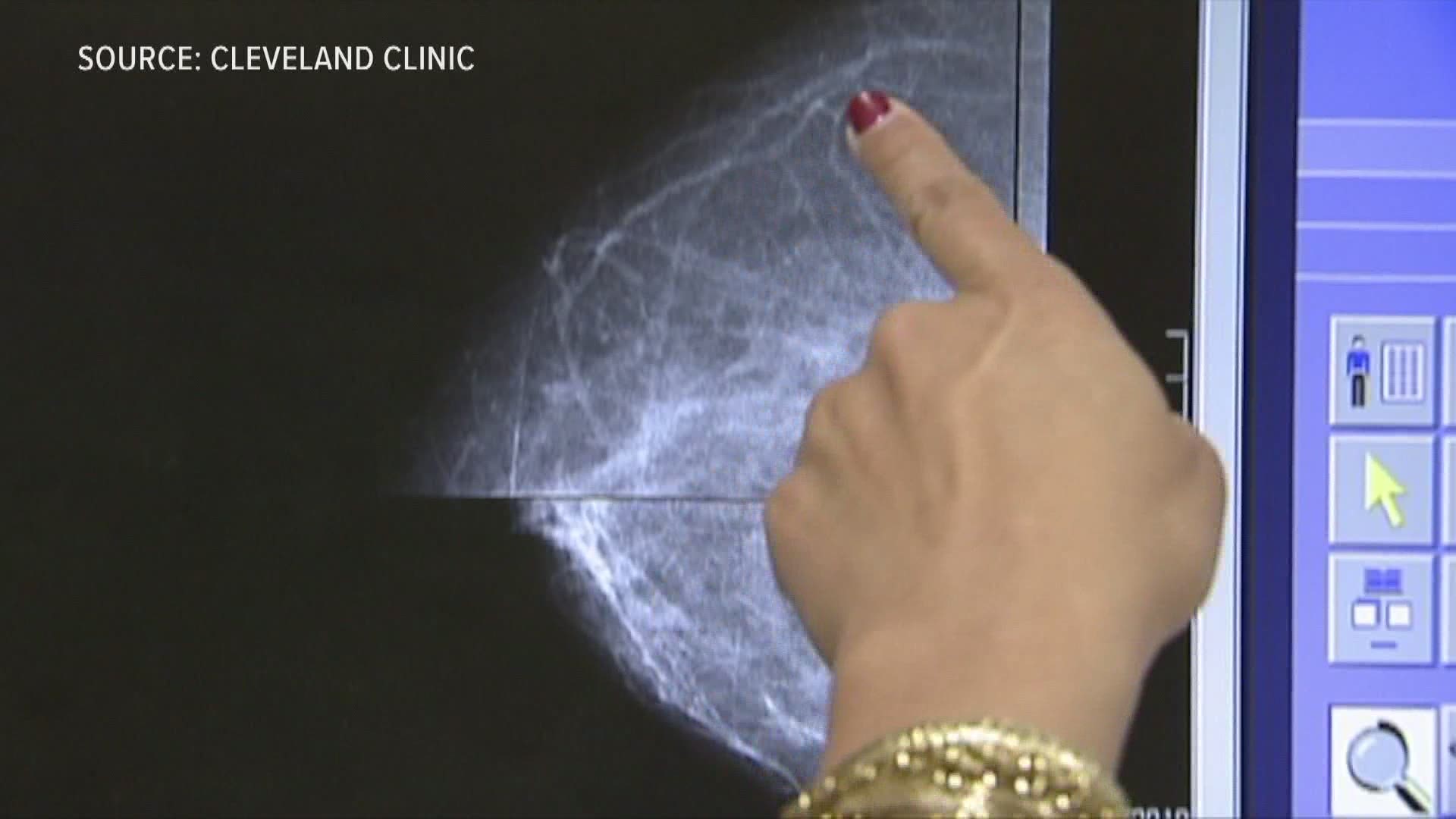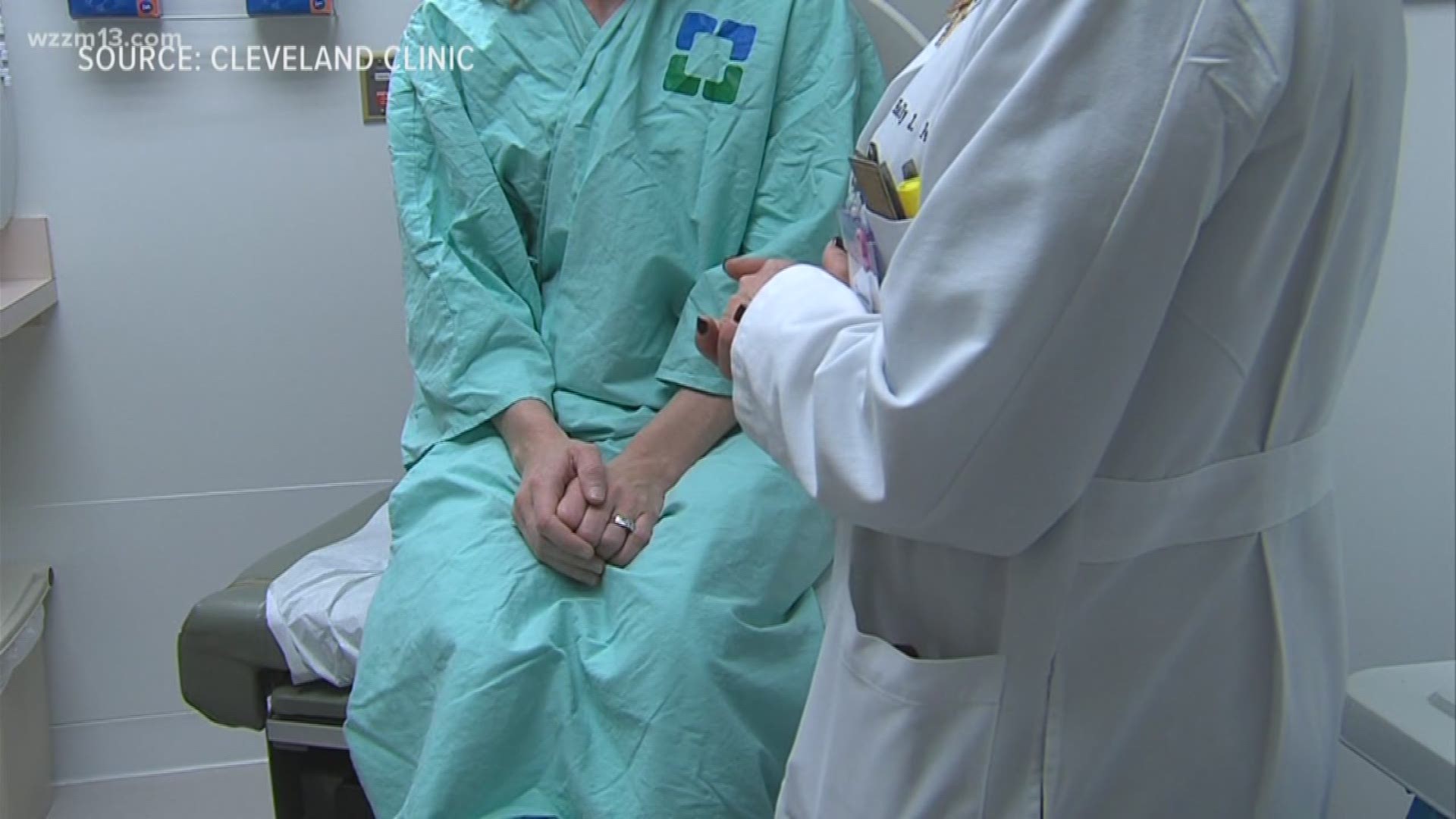GRAND RAPIDS, Mich. — Recent data show one-third of Americans have skipped scheduled cancer screenings during the COVID-19 pandemic, and even more have missed routine doctor's appointments. The numbers are causing concern throughout the medical community, including in West Michigan.
"There are a couple of problems. One problem is some patients are hesitant to go see their doctors or go into health care facilities, during the pandemic. That's one piece of the problem, but the other is that some of those services just haven't been available to patients, at all," says Dr. Paul Wright, Surgical Oncologist, Spectrum Health Cancer Center. "This is particularly true when you think of cancer screenings. Things like getting your colonoscopy done and getting skin checked by a dermatologist or having your mammogram done, or even just a routine checkup with your primary care physician. There's been a lot of those things that patients just haven't had access to."
The research was published by JAMA Network Open, found a steep decline in the number of new cancer diagnoses with 6 common type of cancer, including Breast cancer; Colorectal cancer; Esophageal cancer; Gastric cancer; Lung cancer; and Pancreatic cancer.
According to BreastCancer.org "during the pandemic, the weekly average number of people diagnosed with these six cancers dropped by 46.4%. Specifically, breast cancer diagnoses dropped by 51.8% — from 2,208 to 1,064."
"We want to meet you where you are, so that you get the testing done that you need to have done," says Wright. "When it comes to screenings, we know that cancers that are detected on screening are almost always early stage cancers. And, early stage cancers have the best survival results. There's no argument with that."
RELATED: When she went in for cancer treatment, her family didn't realize they wouldn't see her again
Wright says he would not advise people, especially those that fall into high-risk categories or have a family history, to wait any longer.
"We certainly all understand the fears and the risks of COVID. As health care workers, we've been dealing with those issues, throughout the pandemic. Here at Spectrum Health we're taking a lot of precautions to make sure that patients stay safe," he said. "I think sometimes it's just a matter of patients being reassured that appropriate safety protocols are being followed. And, like I said, feel free to reach out to your doctor or the site where you're having your screening done, just to make sure that you're comfortable with the procedures."
Spectrum Health is currently making an effort to reassure patients they can get screenings done safely during the pandemic.
"It's particularly important as we are coming up on Breast Cancer Awareness Month, in October. A lot of thought is going into, patients getting mammograms done. The mobile mammography unit is a great tool and option, and basically all of our breast care radiology sites are open for mammography now. We just need to make sure patients are taking advantage it for their own health," says Wright.
Wright says he's has noticed more patients starting to take advantage of those screening services at the Spectrum Health Cancer Center, as well as a slight increase in some of the cancers being detected through those screening mechanisms.
"What will be interesting to see is, are those things going to be detected at a little bit of a later stage than they otherwise would have. And, so, it's definitely going to be a focus of study and interest. We're involved in a clinical trial here that's looking at that. It's something that we're going to follow and pay close attention to moving forward," said Wright.
Some experts, like Norman Sharpless, director of the U.S. National Cancer Institute, in a June editorial, warns delayed cancer diagnosis, could lead to as many as 10,000 extra deaths over 10 years in breast and colorectal cancer alone.
►Make it easy to keep up to date with more stories like this. Download the 13 ON YOUR SIDE app now.
Have a news tip? Email news@13onyourside.com, visit our Facebook page or Twitter. Subscribe to our YouTube channel.


